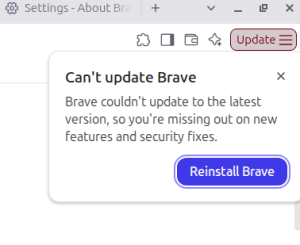The Right to Face One’s Accusers

So you might have read “The Count of Monte Cristo.” The fellow who becomes the Count gets thrown in jail without so much as seeing his accuser until after his escape. Could that really happen? You might not think so if you are used to the American judicial system, but it really can and does happen in places around the world and the accuser doesn’t necessarily have to be a romantic rival. More often, it’s an enemy who wants to get rid of somebody so he can advance his own agenda or even a government who wants to get rid of somebody who is inconvenient.
I bet many people who have been in that situation wish there was something like the “truth spell” in Mercedes Lackey’s Heralds of Valdemar novels really existed and would be automatically applied anytime there’s a criminal case. That would at least cut down on the problem of innocent people going to jail while the guilty walk free. Even when the innocent person is released, that’s years out of his life that he’s never going to get back. Failing that, the false accuser should be made to look the defendant in the eye while making his accusations.
That can be tough when someone is accused of a violent crime and the victim has to be in the same room with him and recount what happened. She has already been through a lot and now she’s paying for the fact that too many people have falsely reported similar crimes. It’s worse for vulnerable children who have been victims of abuse. Some judges have allowed video testimony so the children don’t have to sit there and answer the lawyers’ questions while the abusive parent glares at them. It can get to the point where the rights of the victim should be weighed against the rights of the accused. In some cases, I could see some kind of screen between the two so the victim at least feels protected.
It also has to be a nuisance for the state employees who have to transport people who aren’t exactly Boy Scouts. Even when they’re innocent of this particular crime, maybe they’ve been in and out of jail so many times that they’ve just become familiar faces. They’ll escape if they get the chance and, like Dexter, might have been clever about avoiding the legal system in the past.
But it’s also one of several constitutional rights in America. Specifically, Amendment VI of the Constitution reads:
In all criminal prosecutions, the accused shall enjoy the right to a speedy and public trial, by an impartial jury of the state and district wherein the crime shall have been committed, which district shall have been previously ascertained by law, and to be informed of the nature and cause of the accusation; to be confronted with the witnesses against him; to have compulsory process for obtaining witnesses in his favor, and to have the assistance of counsel for his defense.
The inconvenience is designed to let alleged criminals at least get a good look at their accuser and you’ll probably notice that facing one’s accuser usually doesn’t mean a fistfight for all that you hear infrequent stories about courtroom brawls. Mostly it’s meant as a way to give false accusers a chance to make fools out of themselves in court when they run up against the “innocent until proven guilty” thing and the usual penalties for perjury. Basically, if you want to prove your allegations, you have to be smarter than the defense who could pick you to pieces even when everybody knows that the defendant really did kill that kid in the hoodie.
And, of course, our two rascally Martian colonists, Fred and George, are about to go at it again. Fred has just accused George of eating all the strawberries, so again we have to call all the Martian colonists together to settle it. I’m sure you’re wondering why we haven’t kicked them out of the colony by now, but who else is going to do punishment duty by cleaning the latrines? Well, we just have them sit on opposite sides of the habitat so they won’t start a fistfight while we hash it out and consult the video evidence again. Maybe George really did eat the strawberries, or maybe Fred did and is trying to blame it on George. That’s the point behind the right to face one’s accusers: so they don’t hang you out to dry for something you didn’t do.
The Rights of the Accused










